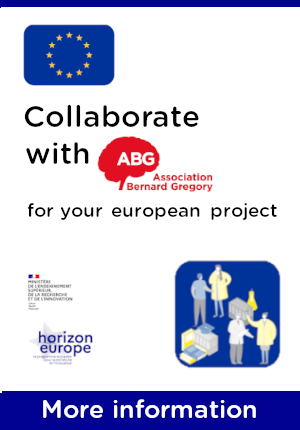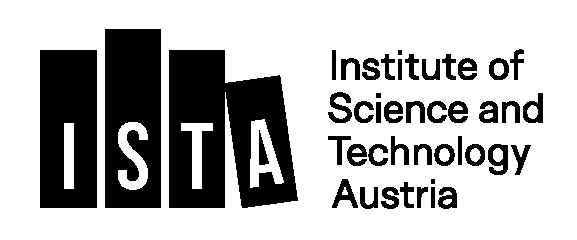Intership M2 Study&Experimental Validation of Synchronization Mechanisms for Ultra-Low-Power BANs H/F
| ABG-134440 | Master internship | 6 months | 4,35€ de l'heure |
| 2025-11-18 |

- Engineering sciences
Employer organisation
Website :
Depuis 1885, JUNIA, affiliée à l'Université Catholique de Lille, forme des ingénieurs prêts à relever les grandes transitions et les défis de demain. Grâce à ses programmes emblématiques HEI, ISA et ISEN, JUNIA développe une expertise pluridisciplinaire couvrant l'industrie, le numérique, l'agroalimentaire, les agricultures, la santé et l'environnement.
Bien plus qu'un établissement d'enseignement supérieur et de recherche, JUNIA est aujourd’hui un acteur économique et social engagé. Elle forme des ingénieurs responsables, et des acteurs du monde de demain (au travers de son offre de formation JUNIA XP) capables de mobiliser des savoirs scientifiques pour répondre aux enjeux complexes de la société.
Reposant sur une pédagogie active et collaborative, JUNIA valorise les projets collectifs et des connexions fortes avec le monde de l'entreprise. Cette approche, enrichie par une vie associative dynamique, joue un rôle central dans la formation d'ingénieurs et de talents compétents, ouverts sur le monde et porteurs de valeurs humanistes.
Ce qui nous caractérise :
Une polyvalence des missions, un contact étroit avec les étudiants, une recherche appliquée et transdisciplinaire, une forte proximité avec les entreprises et une implication dans l’innovation pédagogique.
Chiffres clés :
4 000 étudiants / 35 000 diplômés / 400 salariés permanents JUNIA / 3 campus (Lille, Châteauroux, Bordeaux) / 40 domaines de spécialisations / 65 nationalités (étudiants et professeurs) / 5 laboratoires de recherche publics régionaux en cotutelle
Envie de rejoindre l’aventure ? #joinjunia
Plus d’informations : junia.com
Description
JUNIA sweek a IntershipM2 Study&Experimental Validation of Synchronization Mechanisms for Ultra-Low-Power BANs H/F
Project Context: The HUMAN Project
The HUMAN (Heartbeat-synchronized Ultra-low-power huMan Area Network) project, coordinated by JUNIA IEMN, aims to develop an innovative, highly integrated, and ultra-low-power communicating node for Body Area Networks.
The core innovation relies on two pillars :
- Capacitive Body-Coupled Communication (C-BCC) as the physical layer for secure and energy-efficient on-body data transfer.
- Heartbeat-synchronized MAC layers to drastically reduce the power consumption of leaf nodes by synchronizing their wake-up/communication to the user's cardiac rhythm.
Internship Mission :
The internship will be dedicated to defining the ultra-low-power node architecture and deriving system-level specifications.
- Literature Review Conduct an in-depth review and analysis of existing low-power synchronization mechanisms, including synchronized wake-up, periodic calibration techniques, and highly precise oscillators. The goal is to clearly highlight the benefits and advantages of the proposed heartbeat detection scheme.
- Experimental Measurements Measure actual heartbeats at different positions on the body and analyzing their time relationship. Evaluate the impact of electrode type and position on the quality of the captured signal. Investigate the effect of the distance between the two electrodes and the absence of a common ground reference on signal acquisition
- System Specifications Based on the findings of your theoretical and experimental study, you will contribute directly to the derivation of the final specifications for the timer and heartbeat detector (HB detector) blocks of the integrated circuit.
- Global node architecture Contribute to the global node architecture definition and evaluate the potentialities of the FD-SOI CMOS technologies (28 and/or 18nm nodes) for key building blocks such as receiver and frequency generation
This Master internship can be continued with a PhD thesis, involving CMOS integrated circuit design of a heartbeat detection chip, system-level modeling and participation in SoC integration and demonstrations.
Profile
Your profile :
- Last year Master's student (M2) or equivalent (e.g., final-year Engineering School).
- Field: Microelectronics, Electronics, Telecommunications, or Biomedical Engineering.
- Practical skills in measurement, instrumentation, and design (e.g., using lab equipment and tools like MATLAB, Cadence, PCB design with Altium).
- Autonomy, rigor, and an aptitude for theoretical and experimental research.
- Duration: 6 months.
- Location: JUNIA IEMN, 41 bd Vauban, Lille, France.
Starting date
Vous avez déjà un compte ?
Nouvel utilisateur ?
Get ABG’s monthly newsletters including news, job offers, grants & fellowships and a selection of relevant events…
Discover our members
 MabDesign
MabDesign  SUEZ
SUEZ  Laboratoire National de Métrologie et d'Essais - LNE
Laboratoire National de Métrologie et d'Essais - LNE  Institut Sup'biotech de Paris
Institut Sup'biotech de Paris  Nokia Bell Labs France
Nokia Bell Labs France  ASNR - Autorité de sûreté nucléaire et de radioprotection - Siège
ASNR - Autorité de sûreté nucléaire et de radioprotection - Siège  CASDEN
CASDEN  Tecknowmetrix
Tecknowmetrix  ADEME
ADEME  PhDOOC
PhDOOC  Généthon
Généthon  Aérocentre, Pôle d'excellence régional
Aérocentre, Pôle d'excellence régional  Groupe AFNOR - Association française de normalisation
Groupe AFNOR - Association française de normalisation  CESI
CESI  TotalEnergies
TotalEnergies  Ifremer
Ifremer  MabDesign
MabDesign  ANRT
ANRT  ONERA - The French Aerospace Lab
ONERA - The French Aerospace Lab




